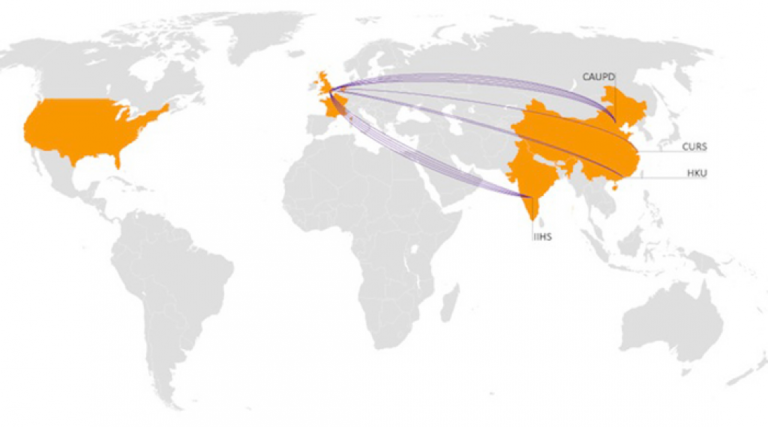
Experiencing the largest wave of urbanisation in human history, a majority of Asia’s overall population will be living in urban areas by 2030. Effective urban management is needed to address the unparalleled growth of Asian megacities. Creating a balance between the benefits and costs of urbanisation with a view to improving the quality of urban life is becoming increasingly important. UKNA’s main objective is to study how Asian cities, as socio-spatial entities, can manage their space and improve their liveability. To this end, the programme hosts a variety of research projects in three key avenues of enquiry:
The three UKNA themes are not meant to stand alone, but will be linked to each other through the common challenges of urban planning, management and governance.
Consisting of over 100 researchers from 13 institutes in Europe, China, India and the United States, the Urban Knowledge Network Asia represents the largest academic international network on Asian cities. The UKNA is being funded by a grant awarded by the Marie Curie Actions International Research Staff Exchange Scheme (IRSES), which is part of the European Union's Seventh Framework Programme.
The project runs from April 2012 until April 2016. The UKNA aims to nurture contextualised and policy-relevant knowledge on Asian cities. This will be achieved via research staff exchanges and targeted case study based research, focusing on three key areas of enquiry: ideas of the city, cities by and for the people, and the future of cities.
In January 2015, the DPU closed its latest call for proposals for UKNA Fellowships. We will shortly publish the profiles of 2015/16 UKNA Fellows from the DPU and those coming to the DPU. Do keep an eye on this webpage for future calls for fellowships.
 Close
Close

